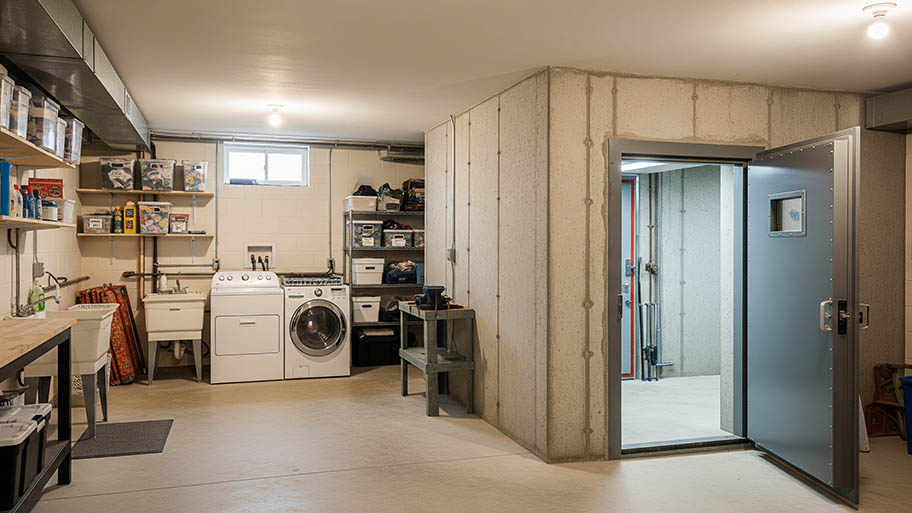
Your mobile home renovation cost will depend on size, scope, materials, and several other factors and can boost your home's value.
Should you be concerned if something goes “bump” in the night?


Scratching sounds often point to a pest or wild animal problem.
Dripping noises can come from HVAC or plumbing systems.
Many toilet-related sounds can come from overfilling or issues with pipes.
Knocking or whistling windows indicate worn weather stripping or other repair needs.
Playing “What’s that noise?” is never fun when you’re a homeowner, yet it’s a game many are all too familiar with. Don’t worry, though. In many cases, your home’s bark is worse than its bite. Still, it’s important not to turn a blind ear—investigate ASAP. Here’s what your home could be trying to tell you with all its creaks, bangs, and moans.
Diagnosing a dripping sound in the ceiling can be tricky, as it can come from many different sources. There may be an issue with your HVAC system, particularly if you hear the noise only in the summer. It might also just be the natural sounds from your pipes when they drain or expand.
In the winter, the sound might be a result of frozen pipes, so you’ll want to call your plumber immediately. Your pipes might also be cracked. Look for wall stains, ballooning paint or plaster, and signs of mold. Again, call a plumber right away if you think this is the issue.
While they might make it impossible to sneak into the kitchen for a midnight snack, squeaky floors are more of an annoyance. This often occurs when a wooden floorboard becomes unfastened and moves up and down adjacent to a nail. In other instances, the cause is wooden planks rubbing up against one another.
You often find this issue in historic homes, which some even find charming. However, if you’re not one of those people, a top-rated local contractor can step in and fix it up.
Most window noises mean the weather stripping around your windows has worn out. With strong winds and other environmental noise, gusts of air push through the windows and cause whistling or rattling sounds. To quiet things down, you’ll likely need to either repair or replace the problem windows, depending on their age and condition.

If you’re sure your house isn’t haunted, the scritch-scratching, thuds, and other noises in your attic are most likely coming from critters. An attic is like a hollowed-out tree for a squirrel, making it the perfect spot to raise its young. Or, if you’re mostly hearing noises at night, it’s possible a nocturnal creature (like a raccoon) found its way up there.
Either way, it’s time to check it out and start the eviction process. Watch for ceilings with chewed holes or stains—these are signs you’ve got non-paying tenants. Because of the threat of rabies and other diseases, it’s crucial to have a local pest control pro assist you. In the meantime, consider installing a chimney cap to seal up that point of entry.
There’s a plumbing myth that the banging noise from your water heater means it’s about to blow. While it sounds intense, there’s no call for alarm. Those sounds are coming from sediment, a result of loose minerals in hard water (mostly calcium). Sediment collects at the bottom of the tank, preventing the heat from rising properly. This causes air bubbles to make those loud popping noises.
Unfortunately, even though there’s no immediate danger, this is a tell-tale sign it’s time to replace your water heater.
Hearing vibrating noises in your wall could mean a number of different causes. These include:
Overloaded or loose circuit breakers
Loose pipes
Loose electrical outlets
If you’re handy around the house, you can inspect your pipes near the source of the vibrating sound effect (if it’s accessible). For suspected electrical issues, always opt for the help of a local electrician.
If you can hear water running when nobody is using it, a few culprits could be responsible. Make sure the following items aren’t running:
Toilet
Dishwasher
Sprinkler system
Washing machine
If you can rule all these out, know this could be something more serious, such as a broken pipe, which needs the attention of a local plumber ASAP.
There are several reasons why you could hear a noise when your toilet flushes. Here are the most common sounds and what usually causes them.
Vibrating noises when the toilet flushes usually indicate there’s an issue with the fill valve. There’s likely a problem with the diaphragm, the soft rubber or neoprene piece that prevents the tank from overfilling. Luckily, this is a relatively straightforward and wallet-friendly DIY toilet repair if you’re up for it. Otherwise, have a plumber come and take a look.
A knocking or hammering noise is a tell-tale symptom of a water hammer, which happens when a valve suddenly closes and causes excess water to hit the walls of your pipes. It’s not an emergency, but it can do serious damage to your pipes over time. To take care of it, call your plumber and have them install a water hammer arrestor.
If you’re hearing a running water sound when you flush, here are the most likely culprits:
Faulty fill valve
Chain connecting toilet handle is too tight or tangled
Toilet tank float is too high
Pop the top of your toilet tank and inspect for these issues. If you’re coming up empty, call your trusty plumber to take a second look.
Five stars for Eraldo Flooring LLC! Their remodeling service exceeded our expectations. The team was punctual, courteous, and incredibly skilled. Our home now feels like a luxurious retreat, thanks to the beautiful flooring installed by Eraldo. If you're looking for a remodeling service...
Alpha Home Inspections did an excellent job conducting my Home Inspections. Javie, the owner, even took the time out to answer all of our questions that we presented him with. He did not rush any part of the Inspection and the report was submitted to us timely, just as he stated it would be....
I am using Pronto for pest control, but noticed signs of possible termites. I, of course called Pronto. They called to remind me, arriving promptly and explained everything they were doing. I had an older infestation but also active termites were using the pathway now. Chris, their technician...
The HIS Colors team was very professional, they were polite and responsive and worked long hours to get the job done quickly, in spite of issues with the weather. There was a significant amount of re-caulking to do, and some wood repairs, which were done well and within estimate guidelines. ...
From average costs to expert advice, get all the answers you need to get your job done.

Your mobile home renovation cost will depend on size, scope, materials, and several other factors and can boost your home's value.

When you’re looking to make a safer space for your family during storms, tornado shelter costs may come to mind. See how much you can expect to pay here.